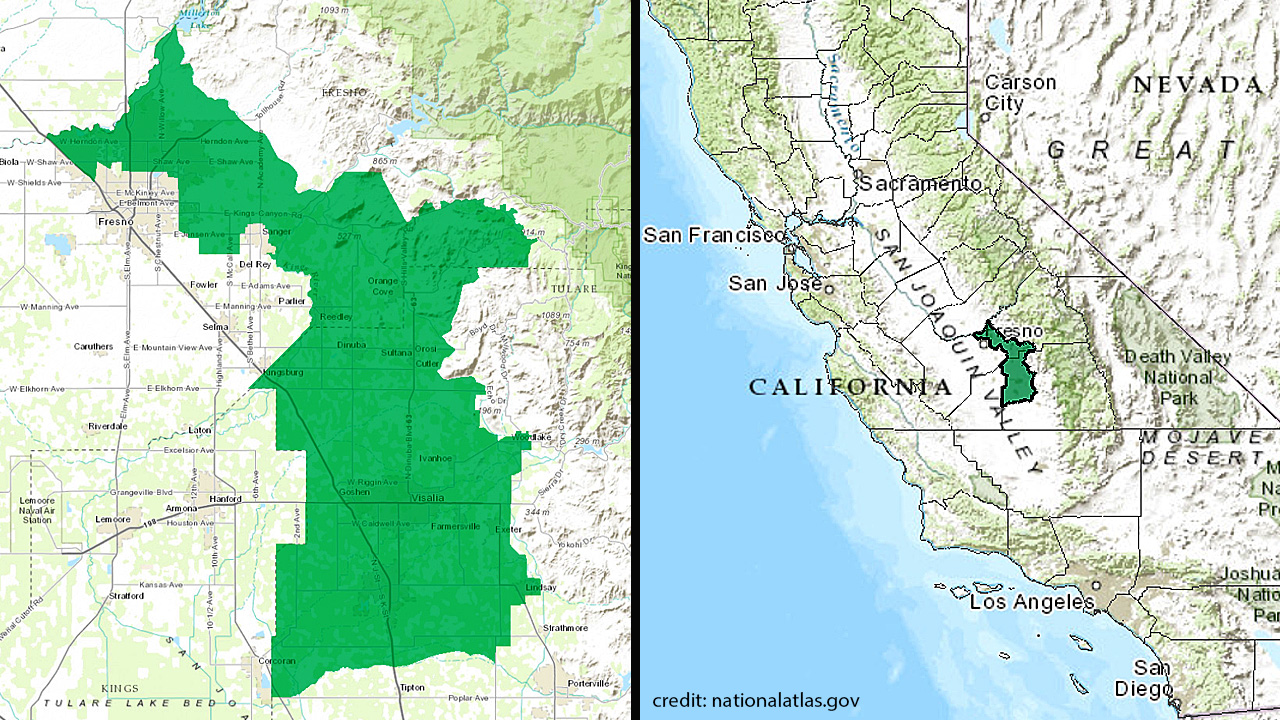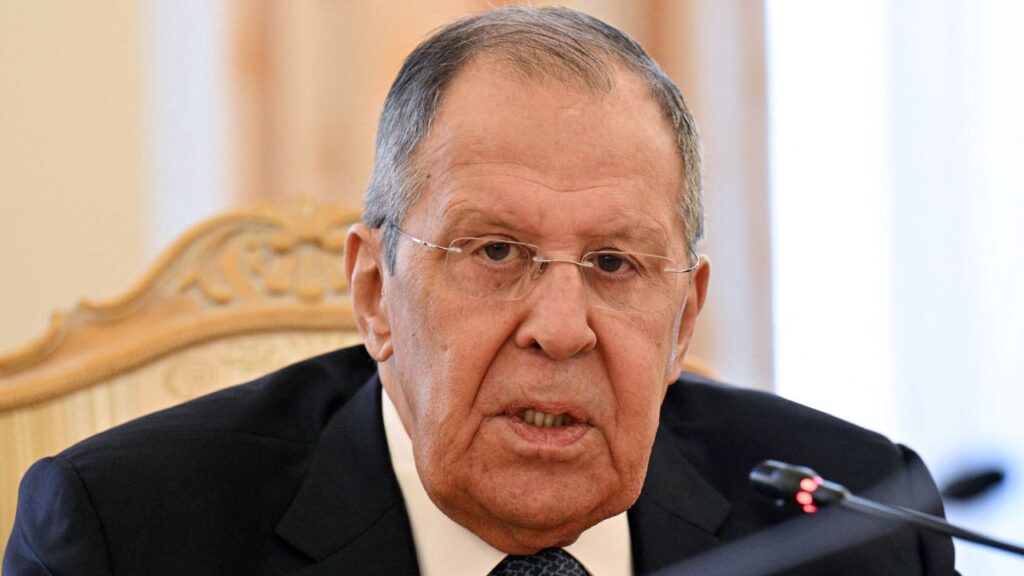Share
Voters in California’s current 22nd Congressional District will choose a short-term replacement for resigned Republican Devin Nunes in a special primary on April 5 and, if no candidate receives a majority of the vote, a run-off will be held June 7.
Gov. Gavin Newsom declared the special election on Friday afternoon, to fill the remainder of the term (through Jan. 3, 2023) of Nunes for the district that includes parts of Fresno, Clovis, and Visalia.
Nunes officially resigned on Jan. 1 to become CEO of former President Donald Trump’s new social media company, Trump Media & Technology Group. He made the announcement of his exit from the House of Representatives in December. The governor’s office determined the official vacancy date was Jan. 3 (when the House read Nunes’ resignation letter into the record).
Newsom Could Have Called for Earlier Date
If Newsom had acted on proclaiming the special election earlier, 22nd District voters could have chosen their next representative on March 8 (with a May 10 run-off), a four-week difference.
Even waiting until last Friday, Newsom could have chosen March 15 or 22 (with a May 17 or 24 run-off).
“Election dates are determined on a case-by-case basis, balancing the opportunity for voters to fill vacancies quickly with other considerations, including proximity to the statewide election date, the expense of a special election and added workload for county election officials,” the governor’s office told GV Wire.
The House calendar shows several weeks of votes in Washington, D.C., between March and June.
Fresno County Clerk James Kus estimates that holding the special elections could cost taxpayers up to $700,000. The cost would double if the special general election was not consolidated with other scheduled contests on June 7.
Who is Running in Special Election?
The window for candidates to pull signature in-lieu of filing fee election papers started on Friday, when the governor issued his proclamation.
The declaration of candidacy period runs Jan. 25 through Feb. 10.
The declared candidates ahead of the opening of filing include Fresno County Supervisor Nathan Magsig, R-Clovis; tech entrepreneur and 2018 congressional candidate Elizabeth Heng, R-Fresno; and three Fresno Democrats who already planned to run against Nunes— businessman Phil Arballo, state water department employee Lourin Hubbard, and Marine veteran Eric Garcia.
State Sen. Andreas Borgeas, R-Fresno, flirted with the idea but said he’s not running for Congress. Fresno County Supervisor Steve Brandau, R-Fresno, also entertained the idea but says he is “happy to continue serving locally.”
KSEE-24 Alexan Balekian reported that Tulare County Sheriff Mike Boudreaux will also not be running.
Others have filed with the Federal Election Commission to fundraise under the 22nd district, but it’s unclear if they plan to run in the special election or the new 22nd District created by redistricting.
Candidates for Congress do not have to live within the district. Only state residency is required.

Who Can Vote in Special Election?
The redistricting process could make things confusing for voters. Only voters registered in the current 22nd Congressional District are eligible to choose the next representative.
If the CD 22 race extends to the June ballot, some voters could see two congressional races on the ballot under different lines.
On June 7, voters in the new CD 5, 20, 21, and 22 could be choosing who fills the remaining six months of one term, and who advances to the November general election to decide a full-term congress member.
In the new lines, the 22nd district now covers parts of Kings, Tulare, and Kern counties. The overlapping area between the old and new 22 is composed of parts of the city of Tulare and surrounding areas.
Congressman David Valadao, R-Hanford, is expected to run in the “new” 22 but has not officially announced yet.
Another Special Election Declared by Newsom
Both the federal and state constitutions mandate that vacancies in Congress and the state Legislature — Assembly and Senate — be filled in a special election proclaimed by the governor.
In declaring the congressional vacancy, Newsom also declared special elections for the 11th and 80th Assembly Districts to replace the resigning Jim Frazier, D-Fairfield, and Lorena Gonzalez, D-San Diego, respectively. They will have the same calendars as the congressional special election.
Newsom has now declared 14 special elections since taking office in 2019.
The law allows Newsom to schedule the special election between 126 to 140 days. But, he can extend it to 200 days to consolidate the special general or primary with an existing election date.
Only once did Newsom use the bare minimum timeline. In another special election declared this year, Newsom could have used the June 7 election date for the Assembly vacancy when Ed Chau was appointed a Los Angeles County judge.
At the time, Newsom’s office said the goal was for “representation as soon as possible.”
The 14 Special Elections Called by Newsom
| Year | Seat/representative | Days to declare | Days to election | Winner |
| 2019 | SD 33/Ricardo Lara (D) | 9 | 139 | Lena Gonzalez (D) |
| 2019 | SD 1/Ted Gaines (R) | 9 | 139 | Brian Dahle (R) |
| 2019 | AD 1/Brian Dahle (R) | 7 | 139 | Megan Dahle (R) |
| 2020 | CD 25/Katie Hill (D) | 12 | 179 | Mike Garcia (R) |
| 2020 | SD 28/Jeff Stone (R) | 14 | 179 | Melissa Melendez (R) |
| 2021 | SD 30/Holly Mitchell (D) | 10 | 149 | Sydney Kamlager (D) |
| 2021 | AD 79/Shirley Weber (D) | 5 | 126 | Akilah Weber (D) |
| 2021 | AD 54/Sydney Kamlager (D) | 1 | 131 | Isaac Bryan (D) |
| 2021 | AD 18/Rob Bonta (D) | 3 | 127 | Mia Bonta (D) |
| 2022 | AD 17/David Chiu (D) | 12 | 170 | Primary 2/15/22 |
| 2022 | AD 49/Ed Chau (D) | 0 | 130 | Primary 2/15/22 |
| 2022 | CD 22/Devin Nunes (R) | 4 | 151 | Primary 4/05/22 |
| 2022 | AD 11/Jim Frazier (D) | 7 | 158 | Primary 4/05/22 |
| 2022 | AD 80/Lorena Gonzalez (D) | 2 | 153 | Primary 4/05/22 |
Key: AD – Assembly District; SD – Senate District; CD – Congressional District; Days to Declare – days between the official vacancy and when Newsom called for a special election; Days to Election – date between the declaration and scheduled special general election; the primary would take place 9-10 weeks before.
Additionally, Newsom made appointments in vacancies for U.S. Senate, state Attorney General, and state Secretary of State. The federal and state constitutions allow for appointments without special elections.
RELATED TOPICS:
Categories



















